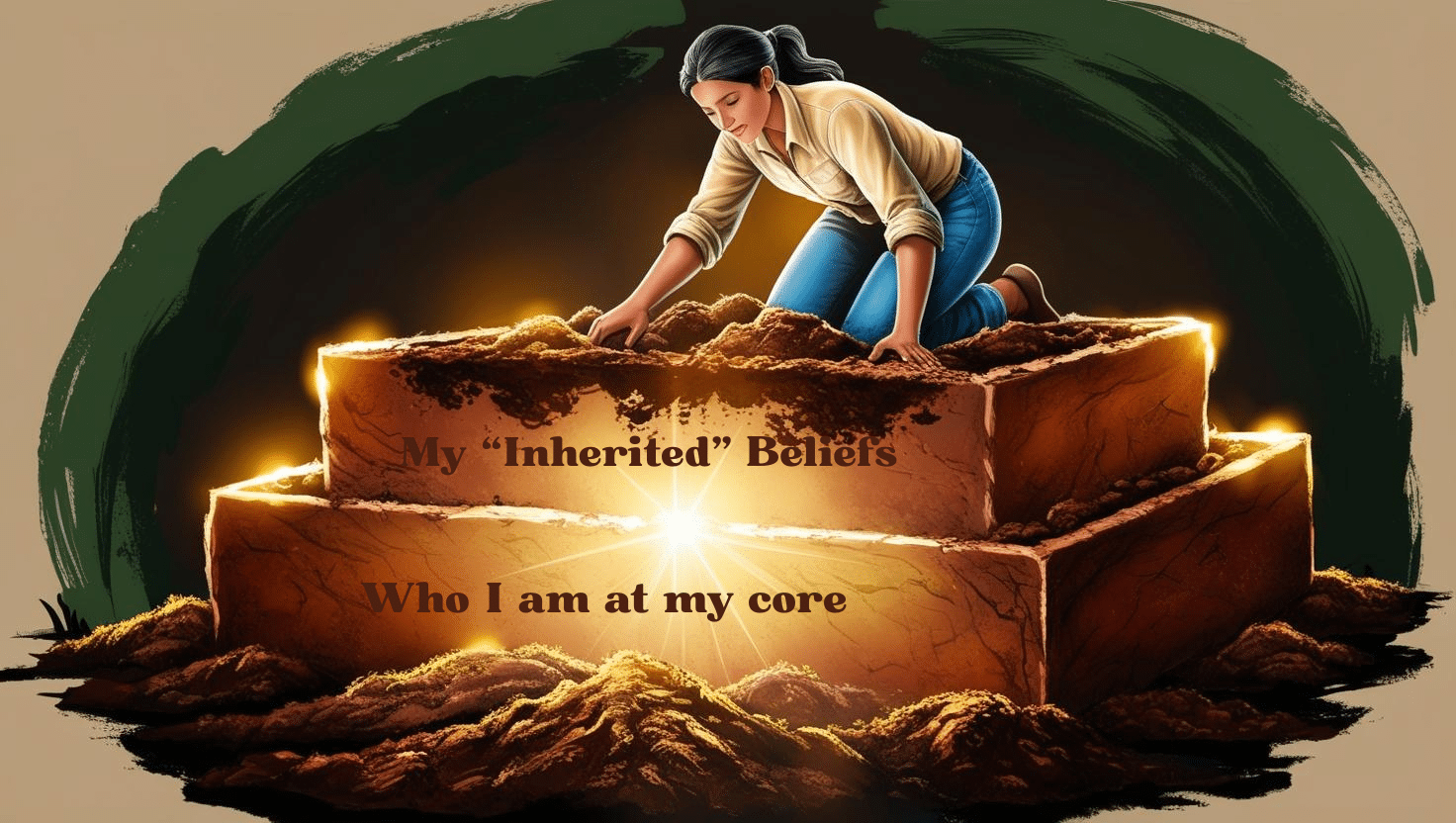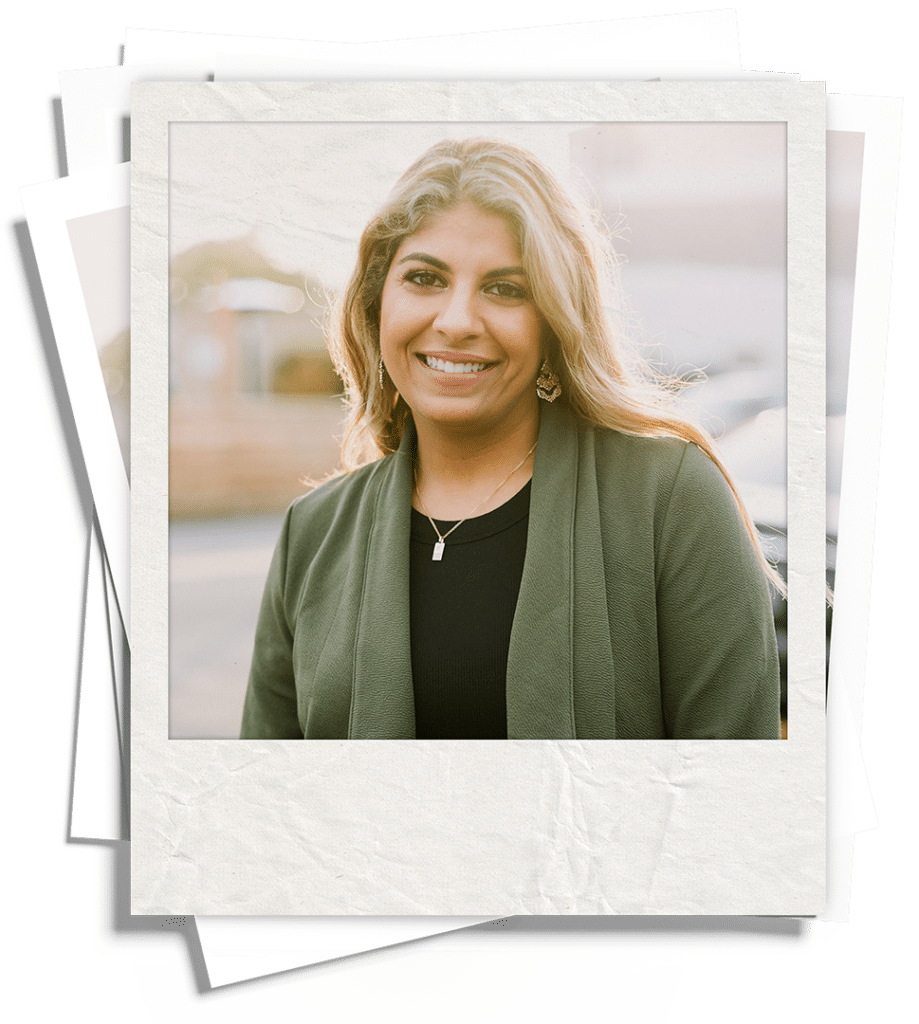We all carry beliefs that shape our decisions, relationships, and life paths. But have you ever stopped to ask: Are these really MY beliefs, or someone else’s?
As we continue our Recalibrate journey, we’re now at the critical Deconstruct phase, where we separate inherited beliefs from authentic truths. This is where transformation truly begins.
Most of our core beliefs formed before we had the capacity to evaluate them critically. They became our operating system, silently running in the background. But just like you wouldn’t run outdated software on your new devices, why operate with outdated beliefs in your life?
The Archaeology of Your Beliefs
Think of yourself as an archaeologist of your own mind. Let’s dig through the layers with these powerful questions:
1. Who originally programmed this belief into my system?
Was it your parents’ cautious approach to money? A teacher who praised certain skills while dismissing others? Cultural messages about what success should look like?
One client realized her belief that “asking for help shows weakness” came directly from watching her father struggle silently for years. This wasn’t her authentic belief – it was inherited trauma disguised as strength.
Journal prompt: Identify one limiting belief and trace its lineage. Who gave you this belief? Under what circumstances?
2. What was happening in my environment when this belief formed?
Context matters tremendously. A belief that “security matters more than passion” might have formed during a family financial hardship. Your avoidance of conflict might stem from childhood experiences in a volatile household.
These contextual beliefs made sense in their original environment but may be completely misaligned with your current reality.
Journal prompt: What circumstances surrounded the formation of your key beliefs? Were they responses to crisis, fear, or scarcity?
3. What evidence am I ignoring that contradicts this belief?
Our brains are masterful at filtering information to support existing beliefs. This confirmation bias keeps outdated beliefs firmly in place.
A client who believed “I’m terrible with money” had actually successfully managed a department budget for years – she just wasn’t counting that evidence because it didn’t fit her narrative.
Journal prompt: List three pieces of evidence from your life that challenge your limiting belief. What successes or experiences are you discounting?
4. Who benefits from me holding this belief?
Sometimes our limiting beliefs serve systems more than they serve us. Who profits – emotionally, financially, or otherwise – from your limitations?
My belief that “I always need to be available” certainly didn’t benefit my wellbeing, but it absolutely benefited previous employers who got my constant attention.
Journal prompt: For each limiting belief, ask who gains something from you maintaining this perspective. Follow the trail of benefit.
5. What emotions arise when I question this belief?
Powerful emotional responses – defensiveness, anxiety, fear, even anger – often signal we’re touching core programming. These emotions aren’t random; they’re protective mechanisms designed to keep the belief intact.
Journal prompt: Sit quietly and notice your physical and emotional response when questioning a core belief. What physical sensations arise? Where in your body do you feel resistance?
6. What identity would I lose if I released this belief?
Often, our most stubborn beliefs are intertwined with our sense of identity. Letting go means reimagining who we are.
A client who always identified as “the responsible one” found tremendous resistance to more playful choices – not because the choices themselves were difficult, but because they threatened her core identity.
Journal prompt: Complete this sentence: “If I let go of this belief, I would no longer be ________.”
7. Who would I disappoint by changing this belief?
Our deepest conditioning often connects to our most important relationships. The fear of disappointing parents, partners, or communities keeps many inherited beliefs locked in place.
I believed having children was something I was “supposed to do.” By questioning this, I feared disappointing my parents and my husband. The conditioning ran so deep that I equated not having children with causing deep disappointment to those I loved most.
Journal prompt: What relationships feel threatened by your evolving beliefs? What expectations feel impossible to challenge?
8. What would become possible without this belief?
Sometimes the most powerful question is also the simplest. Allow yourself to imagine life beyond the limitation. What doors might open? What choices might become available?
Journal prompt: Write a day-in-the-life story from a future where you’ve released this limiting belief. How do you make decisions differently? How do you feel?
9. Is this belief still serving my growth, or is it now limiting it?
Not all inherited beliefs are negative. Some provided genuine protection or guidance when we needed it. But even once-helpful beliefs can become limitations as we evolve.
The belief “be careful with money” might have helped you establish financial stability – but is it now preventing you from making investments in yourself or taking calculated risks?
Journal prompt: How has this belief served you in the past? Is it still serving you now, or has it become more limiting than helpful?
10. What would I choose to believe if I were starting fresh today?
With your current wisdom and life experience, what belief system would you consciously design? This question bypasses old programming and accesses your authentic desires.
Journal prompt: If you could rewrite your beliefs about success/relationships/money/self-worth from scratch, what would your new beliefs be?
From Deconstruction to Reconstruction
Deconstructing inherited beliefs isn’t about rejecting everything you’ve been taught. It’s about conscious evaluation – keeping what truly aligns with your authentic self and compassionately releasing what doesn’t.
Think of beliefs like family heirlooms. Some are treasures worth keeping, while others are outdated pieces that no longer serve you. Yet we often keep both, simply because they were passed down to us.
As you practice these questions, approach yourself with curiosity rather than judgment. This isn’t about blaming those who influenced your beliefs – they were likely passing down what they inherited. This is about reclaiming your right to choose what truths you live by.
Your Weekly Practice
This week, choose one belief that surfaced during your Discovery or Define Cost work, and apply these deconstruction questions. Be patient with yourself – some beliefs have deep roots and take time to fully examine.
Remember, awareness itself is transformative. Simply noticing the difference between inherited beliefs and chosen truths creates space for change.
What belief are you ready to Deconstruct?








